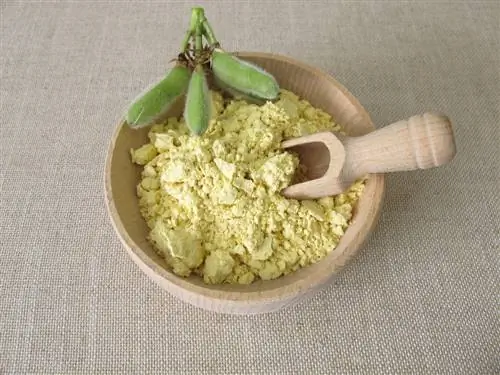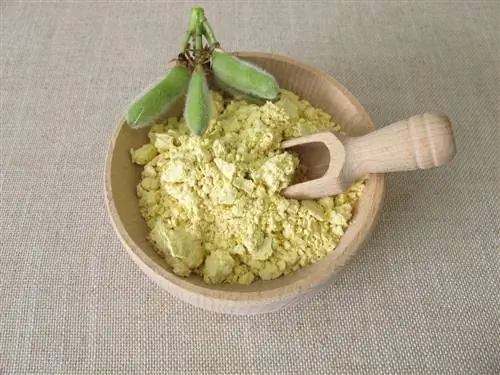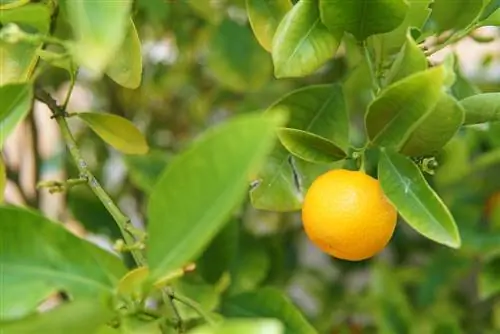- Author admin leonars@hobbygardeners.com.
- Public 2023-12-16 16:46.
- Last modified 2025-06-01 06:02.
Lupins are on everyone’s lips - in the truest sense of the word. They are increasingly being processed into foods that particularly benefit vegetarians and vegans. This is due to the high protein content of the seeds. But can you actually process lupins yourself?

Can I process lupins myself?
Lupins should not be processed yourself, as wild and private garden plants contain poisonous alkaloids. Only specially bred sweet lupins are suitable for the food industry and are non-toxic. Instead, you can buy processed lupine products such as lupine flour or lupine drink.
How are lupins processed?
The seeds of lupins areprocessed into various foods. In stores you will come across the following products, among others, containing lupine seeds:
- Lupine flour
- Lupin protein powder
- Lupine pasta
- Spreads with lupins
- Milk substitute (e.g. lupine drink, lupine yogurt)
- Meat substitute (e.g. lupine sausage)
- Coffee substitute (lupine coffee as an alternative to grain coffee)
Why does processing lupins make sense?
Processing lupins makes sensefor various reasons:
- good source of plant-based protein (ideal for vegetarians and vegans)
- gluten-free
- low purine content (good alternative to other legumes and meat for all those people who suffer from rheumatic diseases or want to prevent them)
Which lupins are processed?
Onlysweet lupins bred specifically for the food industry are processed. Their seeds are more or less free of bitter substances and are therefore non-toxic and edible.
Can I process lupins myself?
You cannot process lupinsyourselfBecause the wild plants and those for private gardens are poisonous and therefore unsuitable as food. They naturally containlarge amounts of alkaloids These are poisonous bitter substances.
Important: Do not experiment culinary with the seeds of your lupine. The alkaloids can significantly affect your nerves and digestion, cause circulatory problems and even lead to respiratory paralysis and death.
Tip
Foods made from lupins can also be intolerable
Lupine products made from sweet lupins are rich in protein and also contain valuable vitamins, minerals and trace elements. They act as a very good source of protein for many groups of people. But be careful: lupine seeds also have allergic potential. Peanut allergy sufferers in particular often react to lupins in the same way.






